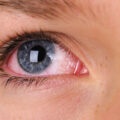Having a rash can be uncomfortable and frustrating, especially when it seems to occur frequently without a clear cause. Contact dermatitis rash is a common culprit behind these skin irritations. In this article, we delve into the world of contact dermatitis to uncover why you might be experiencing these rashes more often than you’d like. We’ll explore its causes, symptoms, prevention strategies, and effective treatment options, providing expert insights to help you manage this condition optimally.
Contact Dermatitis Rash: Understanding the Basics
Contact dermatitis is an inflammatory skin condition triggered by direct contact with certain irritants or allergens. This interaction leads to a range of symptoms, most notably a red, itchy rash. There are two primary types of contact dermatitis: irritant and allergic.
Irritant Contact Dermatitis: Harsh Reality
Irritant contact dermatitis occurs when the skin comes into contact with substances that strip away its natural protective barrier. This can include detergents, solvents, and other chemicals commonly found in cleaning products. The harsh nature of these substances damages the skin, leading to inflammation and the characteristic rash.
Allergic Contact Dermatitis: Immune System’s Role
Allergic contact dermatitis, on the other hand, involves the immune system. When your skin encounters a substance to which you’re allergic, your immune system mounts a defense, leading to inflammation. Common allergens include certain metals, latex, and specific fragrances. The rash from allergic contact dermatitis often takes longer to develop compared to irritant contact dermatitis.

Why Does It Keep Happening? Unveiling the Reasons
Prolonged or Repeated Exposure
Frequent exposure to irritants or allergens increases the likelihood of developing contact dermatitis. This exposure could be due to your occupation, hobbies, or everyday activities. For instance, if you work with chemicals or frequently handle certain metals, your risk of encountering irritants is elevated.
Sensitivity Levels Vary
Not everyone’s skin reacts the same way to irritants and allergens. Some individuals have inherently more sensitive skin, making them more prone to developing contact dermatitis. Genetic factors play a role in determining your skin’s sensitivity levels.
Unrecognized Triggers
In some cases, the triggers behind contact dermatitis can be elusive. You might not immediately associate your rash with a particular substance, especially if the reaction takes time to manifest. This can lead to repeated exposure, exacerbating the issue.
Cross-Reactivity
Cross-reactivity occurs when your body mistakes a harmless substance for an allergen due to its structural similarity to a known allergen. This can lead to unexpected rashes when you encounter substances you wouldn’t typically consider allergenic.
Compromised Skin Barrier
If your skin’s natural barrier is compromised due to pre-existing conditions like eczema or psoriasis, it becomes more susceptible to irritants and allergens. The compromised barrier allows these substances to penetrate more easily, triggering contact dermatitis.
Don’t miss: Can Getting Fingered Cause Yeast Infection? Here Are Facts To Know

Prevention Strategies: Taking Charge of Your Skin’s Health
Protective Measures
If your occupation or activities expose you to potential irritants, adopting protective measures is crucial. Wearing gloves, long sleeves, and other protective gear can minimize direct skin contact and reduce your risk of contact dermatitis.
Allergen Avoidance
Identifying and avoiding allergens is key to preventing allergic contact dermatitis. This might involve reading product labels carefully, using fragrance-free products, and being cautious with jewelry containing common allergenic metals like nickel.
Skin Hydration
Maintaining well-hydrated skin helps strengthen its natural barrier, making it more resilient against irritants and allergens. Regular use of moisturizers can play a significant role in preventing contact dermatitis.
Treatment Options: Finding Relief
Topical Corticosteroids
For mild to moderate cases of contact dermatitis, topical corticosteroids are often recommended. These creams or ointments help reduce inflammation and alleviate itching.
Antihistamines
Antihistamines are effective at relieving the itching associated with contact dermatitis. They work by blocking histamine, a compound that triggers itching and inflammation.
Avoidance and Removal
The most effective way to treat contact dermatitis is to identify and avoid the triggering substance. Once identified, removing the irritant or allergen from your environment can lead to significant improvement.
FAQs
Is contact dermatitis contagious?
No, contact dermatitis is not contagious. It’s an inflammatory reaction triggered by your skin’s interaction with certain substances.
Can stress cause contact dermatitis?
While stress itself doesn’t directly cause contact dermatitis, it can weaken your immune system, potentially making your skin more reactive to irritants and allergens.
Can contact dermatitis be chronic?
Yes, contact dermatitis can become chronic if you continue to be exposed to the triggering substances. Chronic cases might require long-term management and lifestyle adjustments.
Are there any natural remedies for contact dermatitis?
Some natural remedies, like oatmeal baths and aloe vera gel, can provide relief from itching and inflammation. However, they should complement, not replace, medical treatment.
Can I develop contact dermatitis suddenly, even if I’ve never had it before?
Yes, it’s possible to develop contact dermatitis upon initial exposure to an irritant or allergen. Your immune system’s response can vary, leading to sudden reactions.
Can I outgrow contact dermatitis?
While some people might outgrow their sensitivity to certain allergens, contact dermatitis tends to persist unless you avoid the triggers.
Conclusion:
Contact dermatitis can indeed be the reason behind your frequent rashes. By understanding its causes, symptoms, and preventive measures, you can take charge of your skin’s health and significantly reduce the occurrence of these bothersome rashes. If you suspect contact dermatitis, consulting a dermatologist can provide personalized guidance and ensure effective management.








Leave a Reply